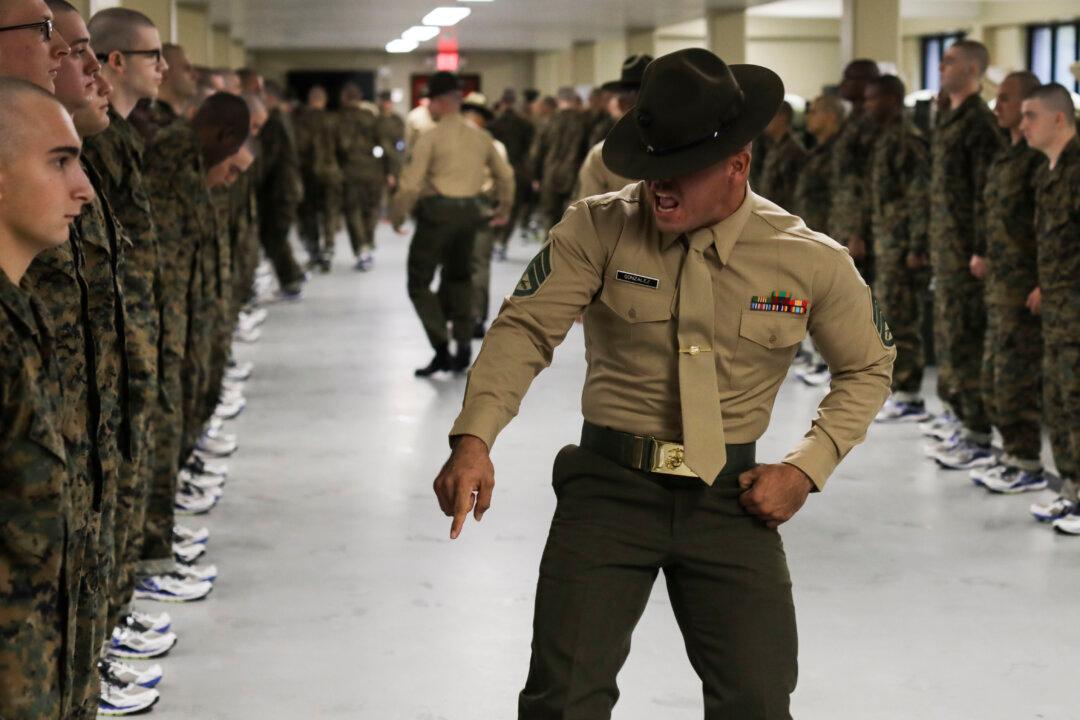The fabled Parris Island Marine boot camp has been temporarily closed to new recruits after 20 people tested positive for the CCP virus at the base.
The base in South Carolina, which was depicted in the 1987 film “Full Metal Jacket,” is one of just two marine training camps in the country. It will now be closed to new recruits for two weeks, according to a statement from the Marine Corps.





